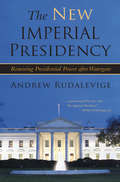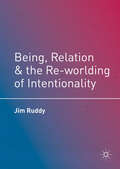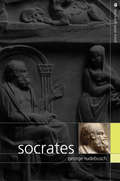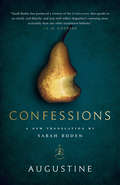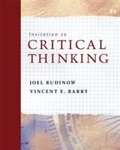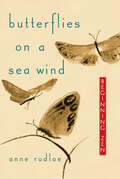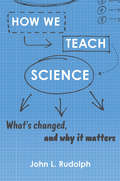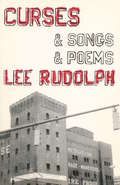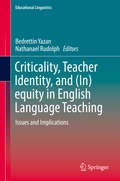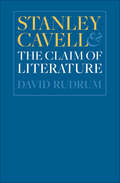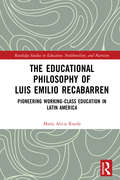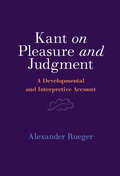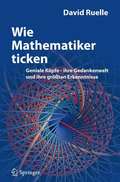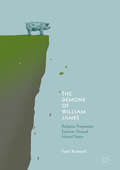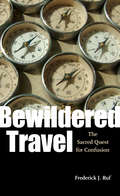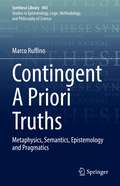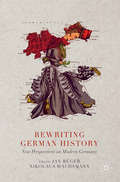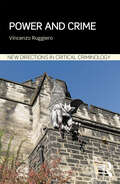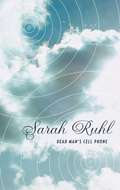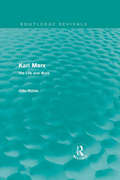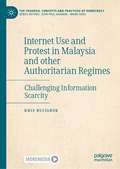- Table View
- List View
The New Imperial Presidency: Renewing Presidential Power after Watergate
by Andrew RudalevigeIn The Imperial Presidency, historian Arthur M. Schlesinger Jr. argued that the Nixon presidency had exceeded its constitutional scope and expanded its power in relation to other branches of government. Of course shortly after the work appeared, Watergate, the ending of the Vietnam War, and other developments led to a resurgence of congressional power in relation to the presidency, although that resurgence has faded as the Imperial Presidency has reasserted itself over recent decades. Rudalevige (political science, Dickinson College) charts these developments, concluding with a discussion of how the legislative deference to the proclaimed powers of the Bush administration in the wake of the September 11th attacks represented a speeded up example of a wider process. Annotation ©2006 Book News, Inc. , Portland, OR (booknews. com)
Being, Relation, and the Re-worlding of Intentionality
by Jim RuddyIn this book, Jim Ruddy has proceeded deep into the hub-center of Husserl's transcendental subjectivity and unearthed an utterly new phenomenological method. A vast, originative a priori science emerges for the reader. Ruddy presents a unique and powerful eidetic science wherein the object consciousness of Husserl is suddenly shown to point beyond itself to the ultimate theme of the pure subject consciousness of God as He is in Himself. Thus, the book opens up an endlessly new, unrestricted realm of objective material for phenomenology to exfoliate and describe. This is an important work for both general phenomenologists and for scholars of Husserl, Aquinas, and Edith Stein.
The Genetic Origination of Truth-Toward-Being: Edith Stein’s Reconfiguration of Husserl’s Phenomenology
by Jim RuddyUsing both Father Kevin Wall’s eidetic matrix of “the relational unity of being” and Edith Stein’s remarkable synoptic view of intentionality in both Aquinas and Husserl, this book uncovers purely logical ground for a subalternate eidetic science called "convergent phenomenology," itself located at the inmost depths of Husserlian phenomenology. Convergent phenomenology emerges as a distinctively new discipline dealing with relation-like objectivity as opposed to the thing-like objectivity of traditional phenomenology. This has grand implications for the way we as humans conceive of God and being. The book thus benefits theologians, logicians, and phenomenologists by revealing the constitutive interrelationality of transcendental logic in an utterly new light as already flowering forth into formal ontology itself. What emerges is a rich conception of divinity and humanity.
Socrates
by George RudebuschSocrates presents a compelling case for some life-changing conclusions that follow from a close reading of Socrates' arguments. Offers a highly original study of Socrates and his thought, accessible to contemporary readersArgues that through studying Socrates we can learn practical wisdom to apply to our livesLovingly crafted with humour, thought-experiments and literary references (from the Iliad to Harry Potter), and with close reading sof key Socratic argumentsAids readers with diagrams to make clear complex arguments
Confessions
by Sarah Ruden AugustineOne of the great works of Western literature, from perhaps the most important thinker of Christian antiquity, in a revolutionary new translation by one of today’s leading classicists Sarah Ruden’s fresh, dynamic translation of Confessions brings us closer to Augustine’s intent than any previous version. It puts a glaring spotlight on the life of one individual to show how all lives have meaning that is universal and eternal. In this intensely personal narrative, Augustine tells the story of his sinful youth and his conversion to Christianity. He describes his ascent from a humble farm in North Africa to a prestigious post in the Roman Imperial capital of Milan, his struggle against his own overpowering sexuality, his renunciation of secular ambition and marriage, and the recovery of the faith his mother had taught him during his earliest years. Augustine’s concerns are often strikingly contemporary, and the confessional mode he invented can be seen everywhere in writing today. Grounded in her command of Latin as it was written and spoken in the ancient world, Sarah Ruden’s translation is a bold departure from its predecessors—and the most historically accurate translation ever. Stylistically beautiful, with no concessions made to suit later theology and ritual, Ruden’s rendition will give readers a startling and illuminating new perspective on one of the central texts of Christianity.Praise for Sarah Ruden “Ruden’s work emphasizes the complexity inherent in translation; she lingers on some of the most challenging concepts and explicates the historical and linguistic context for her work, debunking both myths and poor prior interpretations.”—Publishers Weekly (starred review), on The Face of Water “The best translation yet, certainly the best of our time.”—Ursula K. Le Guin, on The Aeneid “An Aeneid more intimate in tone and soberer in measure than we are used to—a gift for which many will be grateful.”—J. M. Coetzee, on The Aeneid
Invitation to Critical Thinking (6th edition)
by Joel Rudinow Vincent E. BarryShedding outdated material in this update of the 2004 edition, Rudinow (Santa Rosa Junior College) and Barry (Bakersfield College, California) present material for students who already think critically and for those who need to learn how to do so. In an approach exemplified by dialog boxes, they introduce defining terms and issues (e. g. , whether there is room for creativity in critical thinking), the functions of language, and types of reasoning. Chapters include writing assignments, other exercises with an answer key, Internet search tips, and a glossary of key terms. Auxiliary instructional materials are available on a companion Website. Annotation ©2007 Book News, Inc. , Portland, OR (booknews. com)
Butterflies on a Sea Wind: Beginning Zen
by Anne RudloeThis memoir by a marine biologist &“sings the life of a beginning Zen practitioner. . . . [with] a haunting, beautiful appreciation of the natural world.&”(Publishers Weekly) Anne Rudloe was attracted to Zen as a college student. But it seemed premature for a twenty-one-year-old to focus on the difficulties of life when she'd hardly begun to live. Twenty-five years later, she was ready to explore the spiritual discipline that originated in Asian monasteries more than a millennium ago. Rudloe's quest is compellingly chronicled in Butterflies on a Sea Wind, which combines the rigor of formal monastic Zen practice with the challenges of integrating Zen concepts into modern daily life. Her narrative describes both the physical and mental demands of Zen retreats and how she applied what she learned there to her work as a marine biologist in Florida, as well as to the rigors of raising children and caring for an elderly grandmother. In words that intimately draw in her readers, she describes how Zen helps us look inward and use the wisdom we find there to reach out to others. During the 1990s, the number of organized Buddhist centers in this country grew more than 40 percent, from 429 to 1,062. While there are many books about Zen on the market today, few give a clear picture of what it's like to actually sit down and begin a meditation practice and then apply it to a daily life. Likewise, few books discuss the types of issues most people face every day: raising a family and earning a living. Butterflies on a Sea Wind does all this and more.
Butterflies on a Sea Wind: Beginning Zen
by Anne RudloeThis memoir by a marine biologist &“sings the life of a beginning Zen practitioner. . . . [with] a haunting, beautiful appreciation of the natural world.&”(Publishers Weekly) Anne Rudloe was attracted to Zen as a college student. But it seemed premature for a twenty-one-year-old to focus on the difficulties of life when she'd hardly begun to live. Twenty-five years later, she was ready to explore the spiritual discipline that originated in Asian monasteries more than a millennium ago. Rudloe's quest is compellingly chronicled in Butterflies on a Sea Wind, which combines the rigor of formal monastic Zen practice with the challenges of integrating Zen concepts into modern daily life. Her narrative describes both the physical and mental demands of Zen retreats and how she applied what she learned there to her work as a marine biologist in Florida, as well as to the rigors of raising children and caring for an elderly grandmother. In words that intimately draw in her readers, she describes how Zen helps us look inward and use the wisdom we find there to reach out to others. During the 1990s, the number of organized Buddhist centers in this country grew more than 40 percent, from 429 to 1,062. While there are many books about Zen on the market today, few give a clear picture of what it's like to actually sit down and begin a meditation practice and then apply it to a daily life. Likewise, few books discuss the types of issues most people face every day: raising a family and earning a living. Butterflies on a Sea Wind does all this and more.
Realm of Unknowing: Meditations on Art, Suicide, and Other Transformations
by Mark RudmanPowerful meditations on the nature and limits of human understanding.
The Mystic Ark
by Conrad RudolphIn this book, Conrad Rudolph studies and reconstructs Hugh of St. Victor's forty-two-page written work, The Mystic Ark, which describes the medieval painting of the same name. In medieval written sources, works of art are not often referred to, let alone described in any detail. Almost completely ignored by art historians because of the immense difficulty of its text, Hugh of Saint Victor's Mystic Ark (c. 1125-1130) is among the most unusual sources we have for an understanding of medieval artistic culture. Depicting all time, all space, all matter, all human history, and all spiritual striving, this highly polemical painting deals with a series of cultural issues crucial in the education of society's elite during one of the great periods of intellectual change in Western history.
How We Teach Science: What’s Changed, and Why It Matters
by John L. RudolphDespite an enduring belief that science should be taught, there has been no enduring consensus about how or why. This is especially true when it comes to teaching scientific process. John Rudolph shows that how we think about and teach science will either sustain or thwart future innovation, and determine how science is perceived by the public.
Curses
by Lee Rudolph"Lee's poems are like places. I enter them and he talks to me there. I hear his voice. The rare quality is how full these places seem of things and feelings but without crowding me. Rather they make me believe I'm really there. I like Lees poems a lot."--Dick Lourie
Criticality, Teacher Identity, and: Issues And Implications (Educational Linguistics #35)
by Nathanael Rudolph Bedrettin YazanThis edited volume, envisioned through a postmodern and poststructural lens, represents an effort to destabilize the normalized “assumption” in the discursive field of English language teaching (ELT) (Pennycook, 2007), critically-oriented and otherwise, that identity, experience, privilege-marginalization, (in)equity, and interaction, can and should be apprehended and attended to via categories embedded within binaries (e.g., NS/NNS; NEST/NNEST). The volume provides space for authors and readers alike to explore fluidly critical-practical approaches to identity, experience, (in)equity, and interaction envisioned through and beyond binaries, and to examine the implications such approaches hold for attending to the contextual complexity of identity and interaction, in and beyond the classroom. The volume additionally serves to prompt criticality in ELT towards reflexivity, conceptual clarity and congruence, and dialogue.
Stanley Cavell and the Claim of Literature
by David RudrumAn analysis of the significance of literature in the work of one of America's most influential contemporary philosophers.Stanley Cavell is widely recognized as one of America's most important contemporary philosophers, and his legacy and writings continue to attract considerable attention among literary critics and theorists. Stanley Cavell and the Claim of Literature comprehensively addresses the importance of literature in Cavell's philosophy and, in turn, the potential effect of his philosophy on contemporary literary criticism.David Rudrum dedicates a chapter to each of the writers that principally occupy Cavell, including Shakespeare, Thoreau, Beckett, Wordsworth, Ibsen, and Poe, and incorporates chapters on tragedy, skepticism, ethics, and politics. Through detailed analysis of these works, Rudrum explores Cavell's ideas on the nature of reading; the relationships among literary language, ordinary language, and performative language; the status of authors and characters; the link between tragedy and ethics; and the nature of political conversation in a democracy.
The Educational Philosophy of Luis Emilio Recabarren: Pioneering Working-Class Education in Latin America (Routledge Studies in Education, Neoliberalism, and Marxism)
by María Alicia RuedaThis text offers a unique philosophical and historical inquiry into the educational vision of Luis Emilio Recabarren, and his pivotal role in securing independent education for Chile’s working classes in the early 20th century. Through close analysis of the textual archives and press writings, The Educational Philosophy of Luis Emilio Recabarren offers comprehensive insight into Recabarren’s belief in education as essential to the empowerment, emancipation, and political independence of the working class, and emphasises the importance he placed on the education of workers through experiential learning in their organizations and press. By situating his work amongst broader political and educational movements occurring in Latin America in an era of imperialism, the text also demonstrates the progressive nature of Recabarren’s work and maps the development of his philosophy amid Socialist, Marxist, and Communist movements. Making an important contribution to our understanding of the aims and value of adult education in light of neoliberalism today, this text will be of interest to scholars, researchers, activists, and post-graduate students with an interest in education, social movements, and Latin America. The text also addresses key issues raised in studies of Recabarren and the history of education in Chile.
Kant on Pleasure and Judgment: A Developmental and Interpretive Account
by null Alexander RuegerWere there interactions between the development of Kant's aesthetics and the development of his moral philosophy? How did Kant view pleasure and displeasure and what role did they play in the formation of his system of the faculties? In this book, Alexander Rueger situates Kant's account of pleasure and displeasure in its eighteenth-century context, with special attention to Leibniz, Wolff, Crusius, and Mendelssohn. He traces the development of Kant's views on pleasure from the 1770s to his Critique of Aesthetic Judgment in 1790, and shows that throughout, Kant understood pleasure as the satisfaction of faculty interests. The significance of this theory for the completion of Kant's critical system in the third Critique is discussed in detail. Rueger's study illuminates both the role of pleasure and displeasure in Kant's thought, and their important connections to the power of judgment.
Wie Mathematiker ticken
by David RuelleDer renommierte mathematische Physiker David Ruelle schildert in dem Buch seine persönlichen Erfahrungen mit berühmten Mathematikern, deren Eigenarten und persönliche Tragödien - aber auch die erhabene Schönheit ihrer Entdeckungen. Jedes Kapitel stellt eine herausragende mathematische Idee und den visionären Verstand dahinter vor. Dabei gibt der Autor Einblick in die einzigartige Denkweise von Mathematikern und zeigt, weshalb er ihre Herangehensweise, um Fragen nach Sinn, Schönheit und Natur der Wirklichkeit zu diskutieren, für die beste hält.
The Demons of William James: Religious Pragmatism Explores Unusual Mental States
by Tadd RuetenikThis book is a psychological exploration of unusual minds, a religious exploration of demonological myth, and a philosophical exploration of the reaches of pragmatism. It uses topics such as hypnotism, mediumship, and mass possession to argue for a comprehensive understanding of the demonic that acknowledges not only the creativity which it encourages, but also the danger it can bring. Professor Ruetenik uses James’ religious pragmatism to evaluate the relevance of psychical research, and to explain common beliefs regarding demons, spirits, and other controlling personalities. The conclusion of this interdisciplinary research is as alarming as it is fascinating: When exploring the demons of William James, we discover that ordinary personality cannot be clearly separated from what we consider the demonic.
Bewildered Travel: The Sacred Quest for Confusion (Studies in Religion and Culture)
by Frederick J. RufWhy do we travel? Ostensibly an act of leisure, travel finds us thrusting ourselves into jets flying miles above the earth, only to endure dislocations of time and space, foods and languages foreign to our body and mind, and encounters with strangers on whom we must suddenly depend. Travel is not merely a break from routine; it is its antithesis, a voluntary trading in of the security one feels at home for unpredictability and confusion. In Bewildered Travel Frederick Ruf argues that this confusion, which we might think of simply as a necessary evil, is in fact the very thing we are seeking when we leave home.Ruf relates this quest for confusion to our religious behavior. Citing William James, who defined the religious as what enables us to "front life," Ruf contends that the search for bewilderment allows us to point our craft into the wind and sail headlong into the storm rather than flee from it. This view challenges the Eliadean tradition that stresses religious ritual as a shield against the world's chaos. Ruf sees our departures from the familiar as a crucial component in a spiritual life, reminding us of the central role of pilgrimage in religion. In addition to his own revealing experiences as a traveler, Ruf presents the reader with the journeys of a large and diverse assortment of notable Americans, including Henry Miller, Paul Bowles, Mark Twain, Mary Oliver, and Walt Whitman. These accounts take us from the Middle East to the Philippines, India to Nicaragua, Mexico to Morocco--and, in one threatening instance, simply to the edge of the author's own neighborhood. "What gives value to travel is fear," wrote Camus. This book illustrates the truth of that statement.
Contingent A Priori Truths: Metaphysics, Semantics, Epistemology and Pragmatics (Synthese Library #443)
by Marco RuffinoThis monograph offers a comprehensive study of contingent a priori truths. Building onto a theoretical framework developed by the philosopher and logician Saul Kripke, the author also presents a new approach to these truths. The first part of the book details the many theories on contingent a priori truths. The coverage examines the cases of Kripke and David Kaplan, Donnellan and the de re requirement, Evans and weak contingency, as well as Plantinga, Salmon, Soames, and the pseudo a priori. Overall, it provides a systematic discussion and critical review of all these many positions. Next, the author develops an alternative approach. His working hypothesis is that performative verbs must play a central role in Kripke’s examples, even if they do not show up at the surface structure of the corresponding sentences. This opens up an entirely new way of looking at Kripke’s cases and of treating them by exploring some aspects of the theory of illocutionary acts. His discussion also examines brute facts and institutional facts, indexicals and performatives, as well as Frege’s theory of definitions. Providing an authoritative exploration into contingent a priori truths, this book will be of interest to students, academics, and researchers in philosophy and logic.
Rewriting German History: New Perspectives on Modern Germany
by Jan Rüger Nikolaus WachsmannRewriting German History offers striking new insights into key debates about the recent German past. Bringing together cutting-edge research and current discussions, this volume examines developments in the writing of the German past since the Second World War and suggests new directions for scholarship in the twenty-first century.
Power and Crime (New Directions in Critical Criminology)
by Vincenzo RuggieroThis book provides an analysis of the two concepts of power and crime and posits that criminologists can learn more about these concepts by incorporating ideas from disciplines outside of criminology. Although arguably a 'rendezvous' discipline, Vincenzo Ruggiero argues that criminology can gain much insight from other fields such as the political sciences, ethics, social theory, critical legal studies, economic theory, and classical literature. In this book Ruggiero offers an authoritative synthesis of a range of intellectual conceptions of crime and power, drawing on the works and theories of classical, as well as contemporary thinkers, in the above fields of knowledge, arguing that criminology can ‘humbly’ renounce claims to intellectual independence and adopt notions and perspectives from other disciplines. The theories presented locate the crimes of the powerful in different disciplinary contexts and make the book essential reading for academics and students involved in the study of criminology, sociology, law, politics and philosophy.
Dead Man's Cell Phone
by Sarah Ruhl"Satire is her oxygen. . . . In her new oddball comedy, Dead Man's Cell Phone, Sarah Ruhl is forever vital in her lyrical and biting takes on how we behave."--The Washington Post"Ruhl's zany probe of the razor-thin line between life and death delivers a fresh and humorous look at the times we live in."--Variety"Sarah Ruhl is deliriously imaginative and fearless in her choice of subject matter. She is an original."--Molly Smith, artistic director, Arena StageAn incessantly ringing cell phone in a quiet café. A stranger at the next table who has had enough. And a dead man--with a lot of loose ends. So begins Dead Man's Cell Phone, a wildly imaginative new comedy by playwright Sarah Ruhl, recipient of a MacArthur "Genius" Grant and Pulitzer Prize finalist for her play The Clean House. A work about how we memorialize the dead--and how that remembering changes us--it is the odyssey of a woman forced to confront her own assumptions about morality, redemption, and the need to connect in a technologically obsessed world.Sarah Ruhl's plays have been produced at theaters around the country, including Lincoln Center Theater, the Goodman Theatre, Arena Stage, South Coast Repertory, Yale Repertory Theatre, Berkeley Repertory Theatre, among others, and internationally. She is the recipient of the Susan Smith Blackburn Prize (for The Clean House, 2004), the Helen Merrill Emerging Playwrights Award, and the Whiting Writers' Award. The Clean House was a Pulitzer Prize finalist in 2005. She is a member of 13P and New Dramatists.
Karl Marx: His Life and Work (Routledge Revivals)
by Otto RühleFirst published in English in 1929, this is a reissue of Otto Rühle's comprehensive biography of Karl Marx. Written by a leading Marxist and key figure within the German Labour movement, this is an exceptionally detailed and well-researched study which sets Marx's life and work firmly within its social and historical context before examining in depth the major events of his life and the writings for which he has become such an influential figure in modern political philosophy. The final chapter offers an appraisal of both the man and his work, as Rühle summarises why he believes Marx was a genius.
Internet Use and Protest in Malaysia and other Authoritarian Regimes: Challenging Information Scarcity (The Theories, Concepts and Practices of Democracy)
by Kris RuijgrokThis book investigates the impact of internet use on anti-government protesting under authoritarian rule. By breaking up the causal chain into various steps, it provides a thorough and nuanced understanding of internet’s role in different stages of the mobilization process. It argues that the impact of internet use on anti-governmental protesting differs per step in the ‘mobilization chain’, and also that the effect depends on both the on- and offline repression of the regime, as well as on the type of internet that is available. While staying far away from any technologically deterministic claims about the internet, the book demonstrates that the internet especially plays an important role in the early stages of the mobilization process: By exposing citizens to alternative political information online, internet users are more likely to become sympathetic towards anti-governmental protest movements.
